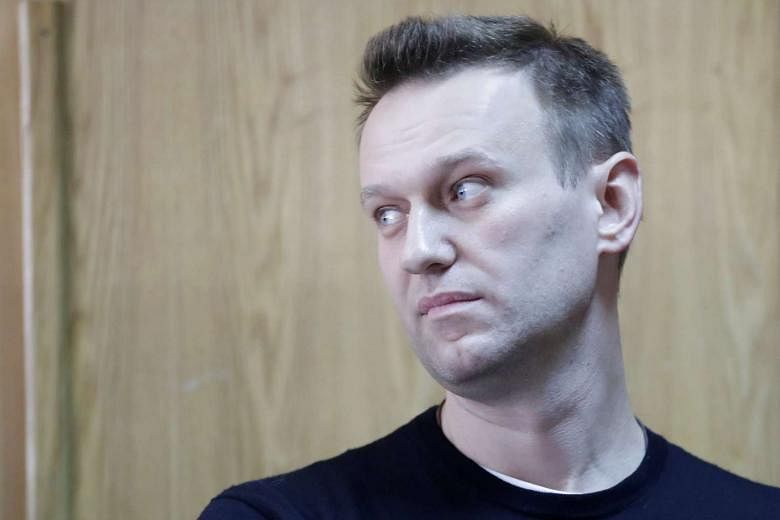MOSCOW • Anti-corruption campaigner Alexei Navalny has cemented his status as leader of Russia's opposition movement by organising the largest unauthorised protest in recent years against President Vladimir Putin's rule.
The clean-cut lawyer, 40, who was arrested at Sunday's demonstration in Moscow, is no stranger to clashes with the Kremlin.
He has spent time under house arrest and seen his brother jailed in a string of cases he has denounced as punishment for his challenging the authorities and exposing the vast wealth of the President's inner circle.
Late last year, in his most ambitious move yet, he announced that he would run for president next year, an election that Mr Putin is expected to dominate.
But Navalny was found guilty last month in a retrial of an embezzlement case that could mean he is not eligible to stand for president - though he insists that he will not be forced out of the race.
Though criticised by some liberals for his anti-immigrant nationalist stance, he has tapped into discontent among the young urban middle class with his fiery speeches.
"I will discuss what everyone has been silent about but has needed to be said for a long time," Navalny said in December when announcing his bid for the presidency.
But in an environment where the media and the political landscape are tightly controlled by the Kremlin, he remains a fringe figure for most Russians, who are more likely to believe the official portrayal of him as a Western stooge and convicted criminal.
"Navalny is a unique politician of the younger generation," said Professor Nikolai Petrov of the Higher School of Economics in Moscow, adding that the lawyer had managed to develop a high profile "at a time when public politics has ceased to exist".
During the mass protests of 2011, sparked by allegations of vote-rigging in parliamentary polls, Navalny grabbed attention with his uncompromising rhetoric. He coined catchy phrases such as the "party of crooks and thieves" to slam the governing United Russia.
Although the protests petered out after a crackdown by the authorities and Mr Putin sailed to a third term in March 2012, they helped launch Navalny's political career.
In 2013, he ran a crowd-funded campaign to be mayor of Moscow, and ended up finishing second behind the Kremlin candidate, with more than 27 per cent of the votes.
But he was also facing a series of legal cases.
In July 2013, he was found guilty in the embezzlement case involving a state-run timber company and given a five-year suspended sentence.
He was then forced to spend months under house arrest over another graft case linked to the French cosmetics company, Yves Rocher.
He was also given a suspended sentence in that case, but his brother Oleg, a co-defendant, was jailed for 3-1/2 years.
AGENCE FRANCE-PRESSE

